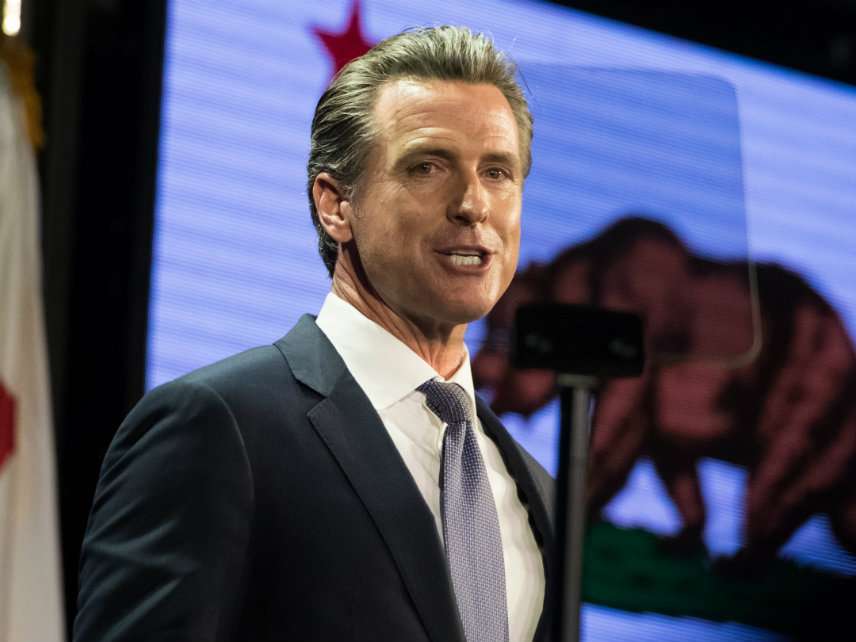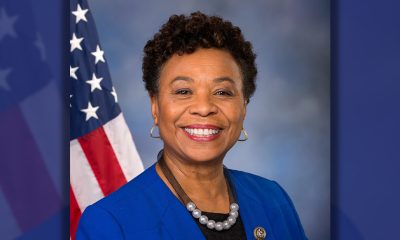Bay Area
After Blackouts, No One’s Feeling Empowered – Not Frustrated Customers, Nor State Officials – Nor Cash-Strapped Utilities

In countries like Nigeria and Haiti, electricity blackouts are routine.
Power outages sometimes last for more than a week in Haiti, where only about 25 percent of the Caribbean nation’s 10.9 million people are connected to the power grid.
And in Nigeria, a country more than 200 million people call home, power companies provide electricity to only 45 percent of households. Losing power about once a day in the West African nation is the norm.
But in the United States, 100% of households have access to electricity and the population’s dependence on power makes providers essential to daily well-being from life-and-death health to information access.
The P&G power outage, which lasted from Oct. 9 through Oct. 12, has been linked to three deaths. It affected more than 700,000 Californians in 35 counties and cost residents, businesses and the public sector over $2 billion dollars.
The blackout, the seventh one scheduled this year, impacted 39 hospitals, too.
For those reasons and more, the recent massive, pre-planned Pacific Gas and Electric (PG&E) blackout two weeks ago in California, the wealthiest state in the nation, was not only upsetting to most people, but also hard to accept and widely criticized.
PG&E resorted to cutting power in designated areas of the state because the National Weather Service predicted heavy winds, high temperatures and dry air, conditions that the company feared would lead to disastrous wildfires if power lines – many of them supported by aging, worn-out transmission towers – were downed. They could spark, setting the dry vegetation ablaze, which could result in deaths and the destruction of property.
Last week, Gov.Gavin Newsom called the power outage “unacceptable.”
“Californians should not pay the price for decades of PG&E’s greed and neglect,” said Governor Newsom last week, slamming the investor-owned utility. “We will continue to hold PG&E accountable to make radical changes – prioritizing the safety of Californians and modernizing its equipment.”
“For years, PG&E has done a poor job on maintenance and tree clearing, and they’re still not even close to where they need to be,” said Sen. Bill Dodd (D-Napa), whose district was impacted by the blackout. “That fact, along with breakdowns in communication, are unacceptable. Sadly, poor performance by PG&E is par for the course, so it’s not surprising.”
The company is the largest electricity and natural gas power provider in the state serving some 16 million people from Santa Barbara and Kern counties in the South, up north to the Oregon state line, and east to the Nevada and Arizona borders.
Even as the utility company, the largest in the state serving 16 million people, faces sharp criticism from state officials, it is defending its decision to cut power as a safety measure. PG&E also cautions that it may have to schedule rolling blackouts for the next 10 years while it updates equipment.
In a hearing before the California Utilities Commission (CUP) on October 18, PG&E CEO Bill Johnson, along with nine other company executives, admitted the company’s shortcomings during the blackout and apologized for them. They also assured state officials that PG&E is taking measures – including updating its equipment, using technology to limit the target area of future blackouts and trimming trees near transmission towers – to minimize outages and prevent wildfires.
“We recognize the hardship that the recent public safety power shutoff event caused,” Johnson wrote in a letter to the PUC. “At the same time, we ask our customers … to keep in mind that statistic that matters most: there were no catastrophic wildfires.”
PG&E is currently facing a number of uphill battles in California.
The utility provider is taking steps to emerge from bankruptcy after facing more than $30 billion in liabilities for wildfires (far more than its total revenue in 2017, which was $17.4 billion). The worst was last year’s Camp Fire, the deadliest in the state’s history, which resulted in the deaths of 86 people, gutted more than 18,000 buildings and ravaged more than 150,000 acres of land, including the town of Paradise in Butte County.
Critics are also blasting the utility company for the way it handled not only the disruption of service but also its customer service response and public relations activity related to the blackout.
“You guys failed on so many levels on pretty simple stuff,” said Marybel Batjer, president of the California Public Utilities Commission, pointing out that the company’s website, which many of its customers were relying on for information pertaining to the blackouts, crashed.
Activism
Oakland Post: Week of April 24 – 30, 2024
The printed Weekly Edition of the Oakland Post: Week of April 24 – 30, 2024

To enlarge your view of this issue, use the slider, magnifying glass icon or full page icon in the lower right corner of the browser window. ![]()
Alameda County
DA Pamela Price Stands by Mom Who Lost Son to Gun Violence in Oakland
Last week, The Post published a photo showing Alameda County District Attorney Pamela Price with Carol Jones, whose son, Patrick DeMarco Scott, was gunned down by an unknown assailant in 2018.

Publisher’s note: Last week, The Post published a photo showing Alameda County District Attorney Pamela Price with Carol Jones, whose son, Patrick DeMarco Scott, was gunned down by an unknown assailant in 2018. The photo was too small for readers to see where the women were and what they were doing. Here we show Price and Jones as they complete a walk in memory of Scott. For more information and to contribute, please contact Carol Jones at 510-978-5517 at morefoundation.help@gmail.com. Courtesy photo.
Bay Area
State Controller Malia Cohen Keynote Speaker at S.F. Wealth Conference
California State Controller Malia Cohen delivered the keynote speech to over 50 business women at the Black Wealth Brunch held on March 28 at the War Memorial and Performing Arts Center at 301 Van Ness Ave. in San Francisco. The Enterprising Women Networking SF Chapter of the American Business Women’s Association (ABWA) hosted the Green Room event to launch its platform designed to close the racial wealth gap in Black and Brown communities.

By Carla Thomas
California State Controller Malia Cohen delivered the keynote speech to over 50 business women at the Black Wealth Brunch held on March 28 at the War Memorial and Performing Arts Center at 301 Van Ness Ave. in San Francisco.
The Enterprising Women Networking SF Chapter of the American Business Women’s Association (ABWA) hosted the Green Room event to launch its platform designed to close the racial wealth gap in Black and Brown communities.
“Our goal is to educate Black and Brown families in the masses about financial wellness, wealth building, and how to protect and preserve wealth,” said ABWA San Francisco Chapter President LaRonda Smith.
ABWA’s mission is to bring together businesswomen of diverse occupations and provide opportunities for them to help themselves and others grow personally and professionally through leadership, education, networking support, and national recognition.
“This day is about recognizing influential women, hearing from an accomplished woman as our keynote speaker and allowing women to come together as powerful people,” said ABWA SF Chapter Vice President Velma Landers.
More than 60 attendees dined on the culinary delights of Chef Sharon Lee of The Spot catering, which included a full soul food brunch of skewered shrimp, chicken, blackened salmon, and mac and cheese.
Cohen discussed the many economic disparities women and people of color face. From pay equity to financial literacy, Cohen shared not only statistics, but was excited about a new solution in motion which entailed partnering with Californians for Financial Education.
“I want everyone to reach their full potential,” she said. “Just a few weeks ago in Sacramento, I partnered with an organization, Californians for Financial Education.
“We gathered 990 signatures and submitted it to the [California] Secretary of State to get an initiative on the ballot that guarantees personal finance courses for every public school kid in the state of California.
“Every California student deserves an equal opportunity to learn about filing taxes, interest rates, budgets, and understanding the impact of credit scores. The way we begin to do that is to teach it,” Cohen said.
By equipping students with information, Cohen hopes to close the financial wealth gap, and give everyone an opportunity to reach their full financial potential. “They have to first be equipped with the information and education is the key. Then all we need are opportunities to step into spaces and places of power.”
Cohen went on to share that in her own upbringing, she was not guided on financial principles that could jump start her finances. “Communities of color don’t have the same information and I don’t know about you, but I did not grow up listening to my parents discussing their assets, their investments, and diversifying their portfolio. This is the kind of nomenclature and language we are trying to introduce to our future generations so we can pivot from a life of poverty so we can pivot away and never return to poverty.”
Cohen urged audience members to pass the initiative on the November 2024 ballot.
“When we come together as women, uplift women, and support women, we all win. By networking and learning together, we can continue to build generational wealth,” said Landers. “Passing a powerful initiative will ensure the next generation of California students will be empowered to make more informed financial decisions, decisions that will last them a lifetime.”
-

 Community2 weeks ago
Community2 weeks agoFinancial Assistance Bill for Descendants of Enslaved Persons to Help Them Purchase, Own, or Maintain a Home
-

 Activism3 weeks ago
Activism3 weeks agoOakland Post: Week of April 3 – 6, 2024
-

 Business2 weeks ago
Business2 weeks agoV.P. Kamala Harris: Americans With Criminal Records Will Soon Be Eligible for SBA Loans
-

 Community2 weeks ago
Community2 weeks agoAG Bonta Says Oakland School Leaders Should Comply with State Laws to Avoid ‘Disparate Harm’ When Closing or Merging Schools
-

 Activism2 weeks ago
Activism2 weeks agoOakland Post: Week of April 10 – 16, 2024
-

 Community1 week ago
Community1 week agoOakland WNBA Player to be Inducted Into Hall of Fame
-

 Community1 week ago
Community1 week agoRichmond Nonprofit Helps Ex-Felons Get Back on Their Feet
-

 City Government2 weeks ago
City Government2 weeks agoLAO Releases Report on Racial and Ethnic Disparities in California Child Welfare System






















































